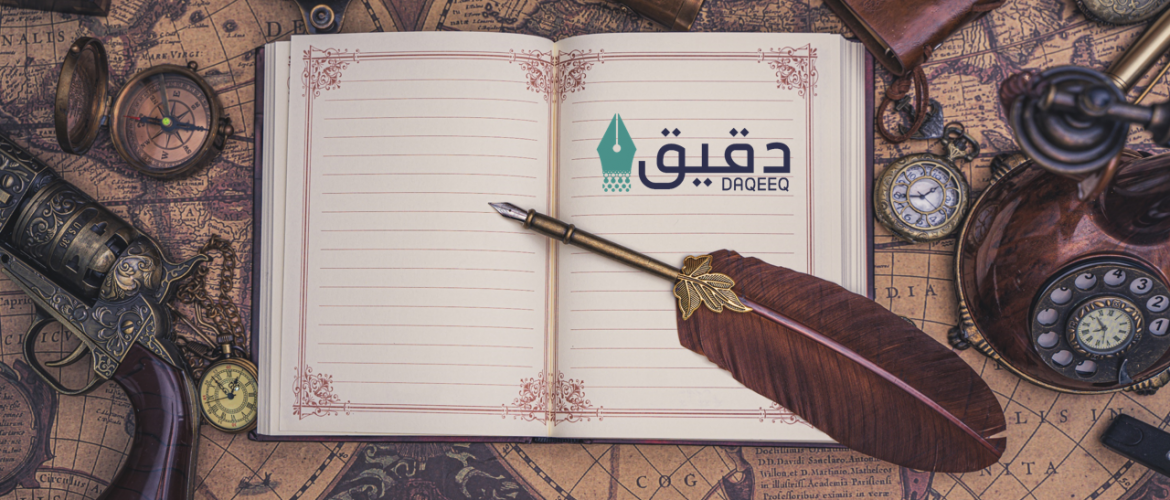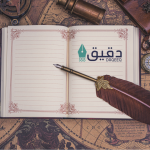Category: Translation & History Written by: Daqeeq Date: 31 Jan 2021
Daqeeq says….
Origins of professional translation in Islamic history
DAQEEQ (Dubai) –– It is no wonder that the translation movement was one of the most important factors of Islamic civilization prosperity and it played a fundamental role in shaping it, contributing across the ages that followed to transforming various kinds of sciences into and from Arabic. This, in turn, paved the way for the Muslim scholars to benefit from and develop sciences, building on the achievements of other cultures.
Islam’s encouragement of people to pursue education, be tolerant towards other religions and motivate them to seek knowledge resulted in giving access into a major part of the cultures that Muslims did not and would not have the chance to know, but only through translation.
On that ground, translation started to gain interest in the era of Prophet Muhammad (Allah’s prayers and peace may be upon him), as he sent letters to the world’s kings and leaders who did not speak Arabic inviting them to Islam, such as Khosrow of Persia, Hercules of the Romans and Al-Najashi of Abyssinia.
Hence, translation origins go back to the beginning of Islam under the directions of the Messenger of Allah as He said: “He who knows the language of a group of people, he will be safe from their evils”. The most famous companion of Allah’s Messenger who learned Syriac language was Zaid bin Thabet, who also learned Persian, Roman and Hebrew.
Translation received a higher encouragement during the early Umayyad dynasty when the first roots of institutionalized translation emerged, starting with the Umayyad Caliph Muawia Bin Abi Sufian, who was fond of getting acquainted with kings’ policies and conducts, as he assigned his people to copy books translated from Greek, Latin and Chinese. (source?)
After that came Khalid Bin Yazeed, died in 85 Hijri, who was interested in medicine and chemistry, and ordered the translation of medicine and chemistry books brought from Alexandria into Arabic. That is considered the first rendition act from a language into another in Islam. He even was believed to be the first founder, setting the cornerstone of translation drive in the Islamic world. Hence, it is noteworthy that scientific translation movement started in this era in the first Hijri century.
Translation, from and into Arabic, continued to rise and spread in the Abbasid caliphate with Abu Jaafar Al-Mansour, during whose reign a plenty of books of medicine and different literatures and sciences were translated, such as “Ibn Almokafa” who introduced the translation of the book named “Kalila wa Dimna” from the Persian literature, followed by numerous translations of Greek, Hindi and Syriac books.
The movement of translation witnessed a leap under Haroon Al-Rashid and Alma’moun, as the latter engineered a dramatic shift in the field of translation from various languages and on different subjects. During their times, Syriac, Persian and Greek literatures and sciences were translated into Arabic, which rose to a prominent place and became the language of science, philosophy and literature.
Muslims soon took off to the innovation world of all arts and sciences and succeeded in establishing a civilization which became the greatest over 10 centuries. In his book “The Arabic scientific heritage”, Bashir Yasin Khalil points out this cultural shift by saying: the status of Arabic scientific heritage stems from two factors:
The first is what the Arabs achieved of translations from other languages to Arabic, preserving a huge bulk of knowledge hitherto. The second is what they added and created of new tools and knowledge to the entire humanities, mathematics, geometry, natural and technological sciences domains. This had significant impact on the European renaissance, especially as the works of Arab scholars and scientists have been translated to various languages, influencing thinkers and scientists in the continent, who built on the Arab-Islamic heritage and took it to a new level of sophistication.








No comments yet.